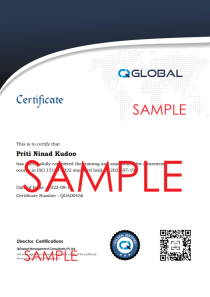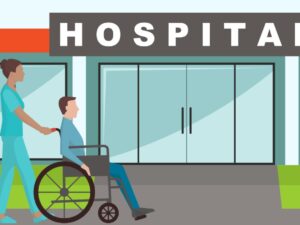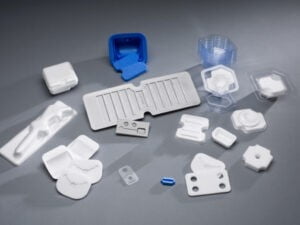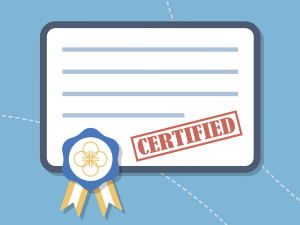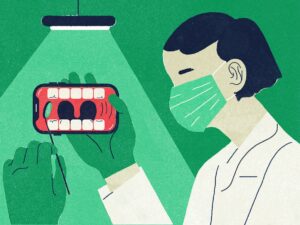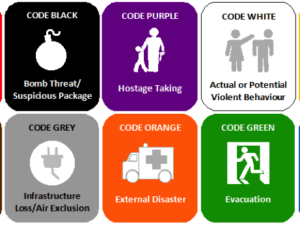Infection Control Practices in Healthcare - Awareness Course
- Description
- Curriculum

Infection is one of the most dreaded adverse events associated with healthcare delivery, accounting for considerable morbidity, mortality and cost. Although sometimes unavoidable, a significant proportion of healthcare associated infections could be prevented by better quality clinical practice. Though all healthcare practitioners are responsible for ensuring consistent delivery of high quality clinically effective care and protect patients from the risk of infection, the support of an “Infection Control Practitioner” can play a vital role in ensuring that all Health Care Workers (HCW) adhere to the correct infection control practices. Thus one can prevent a large number of infections with improved healthcare delivery and patient outcome. The aim of the course is to train the healthcare workers so as to provide a well supervised expertise in the field of hospital infection control. This program is an endeavor to prepare healthcare professionals for implementation of hospital infection control activities in their day to day practices to prevent hospital acquired infections.
Who Should Attend?
- Auditors
- Certification managers
- Healthcare facility managers
- Healthcare safety & quality personnel
- Inspectors
- Owners/directors of healthcare organizations
- Fresher and job seekers
- QA/QC Personnel
- Regulatory authorities & personnel
Key Benefits
- Learn to develop effective Standard Operating Procedures (SOPs) for health care infection control
- Conduct a risk assessment and develop controls
- Identify and select proportionate mitigation measures
- Learn the documentation practices to manage healthcare infections
- Learn to develop an effective training and communication strategy for managing healthcare infections
- Learn the inspection and verification techniques to check the effectiveness of healthcare infection control measures
Learning & Evaluation Method
This is a self learning course. Study materials will be available in your account once you purchase the course. If you need a live and interactive course, you can opt for ‘ BUY FOR A GROUP ‘ option. Live course will have role plays, online workshops, practice questions and group discussions during the course so that each participant will gain in depth knowledge in the subject. Group purchase can be made for a single participant or for a group of participants. On receiving your order, our team will contact you to schedule a live training session as per your convenience. After the completion of this course you can participate in the online examination if you wish to test your knowledge . Those securing minimum 50% marks will pass the exam. You will be allowed to retake the exam. Attending the exam is not mandatory to receive a course completion certificate.
Certification
There are increasing numbers of organizations, who prefer candidates those who have certain certifications from recognized programs. Certification demonstrates your commitment to superior professionalism, upholding industry standards, and continued learning. These merits can help boost your professional credibility and prestige within your own network, in your organisation, with your current clients, and when pursuing new business opportunities. After the successful completion of the course and final exam, you will be awarded with a certificate of completion issued by QGlobal. Your credentials will be made available in the global online directory and can be verified by anyone searching with the certificate number. Without doubt we can say that our training courses are well recognized and sought after by organizations across various geographies.
Total: 205 Courses View all
-
1Introduction to healthcare infection control
-
2HEC02 Risk management
-
3Defining roles and responsibilities
-
4Creating documents and records
-
5Communication requirements
-
6HEC03 Training and awareness
-
7Infrastructure planning
-
8Identifying regulatory requirements
-
9Infection control committee
-
10Standard precautions
-
11Catheter-associated urinary tract infection (CAUTI)
-
12Surgical site infections (SSI)
-
13Central line-associated bloodstream infection (CLABSI)
-
14Ventilator-associated Pneumonia (VAP)
-
15HSE - Personal protective equipment (PPEs)
-
16Hand hygiene practices
-
17Isolation practices
-
18Disinfection and Sterilization
-
19Laundry management
-
20House keeping
-
21Biomedical waste management
-
22Handling adverse events
-
23Managing high risk areas
-
24Managing high risk procedures
-
25Dietary and Kitchen Services
-
26Inspection and verification
-
27Performance monitoring and improvement
-
28Handling non conformities

